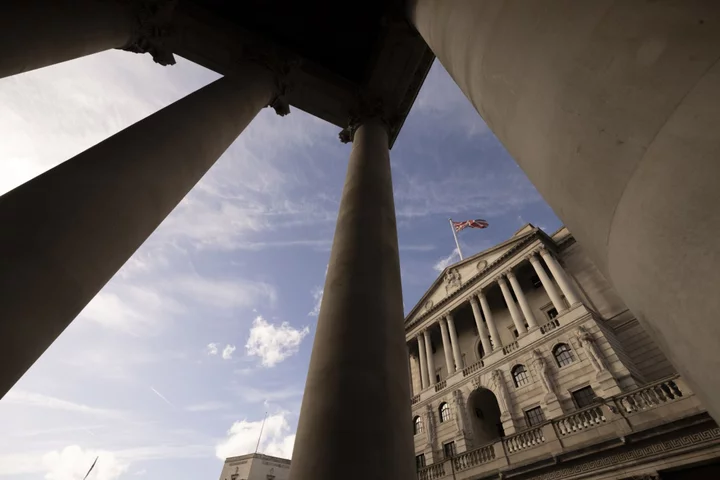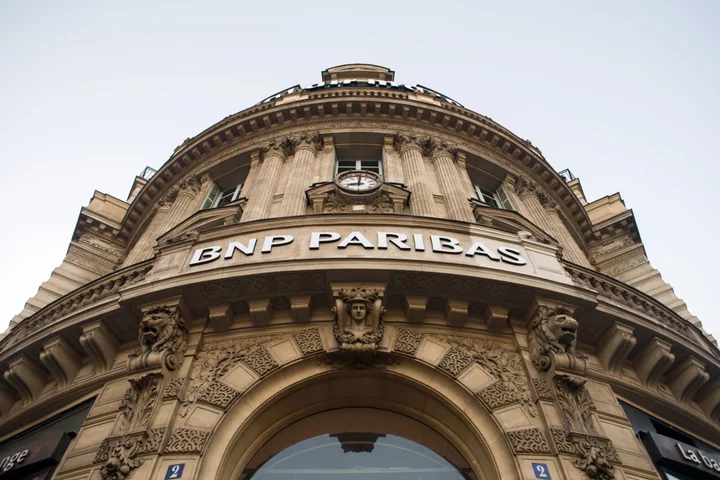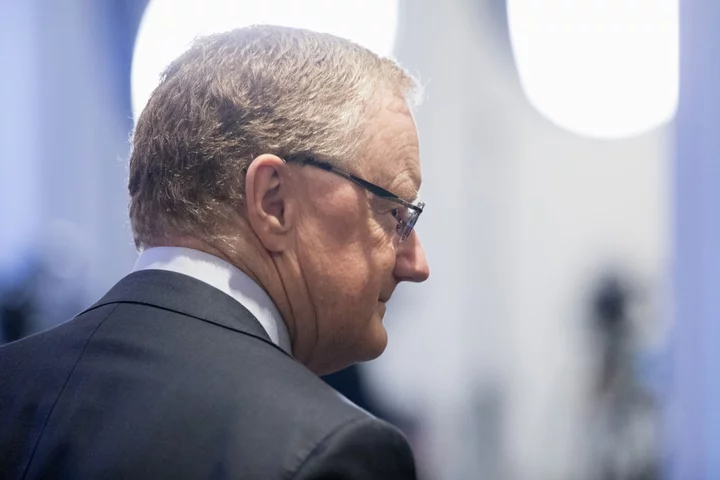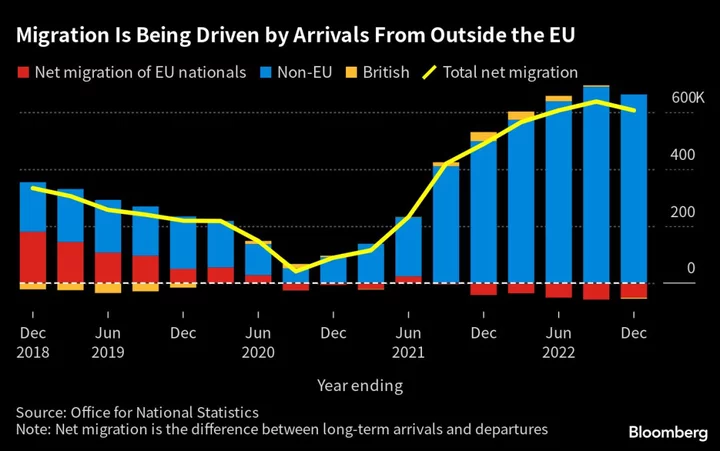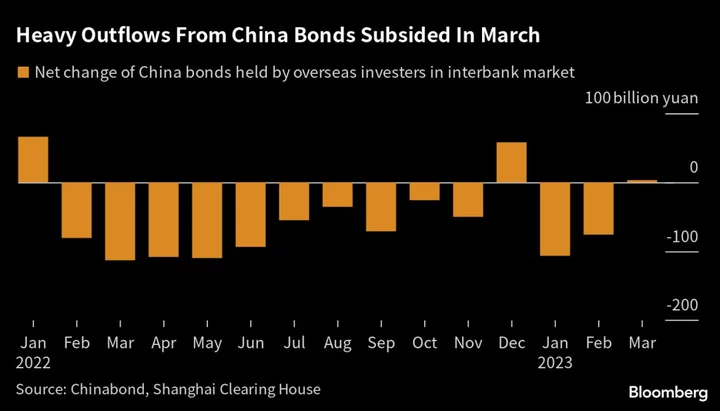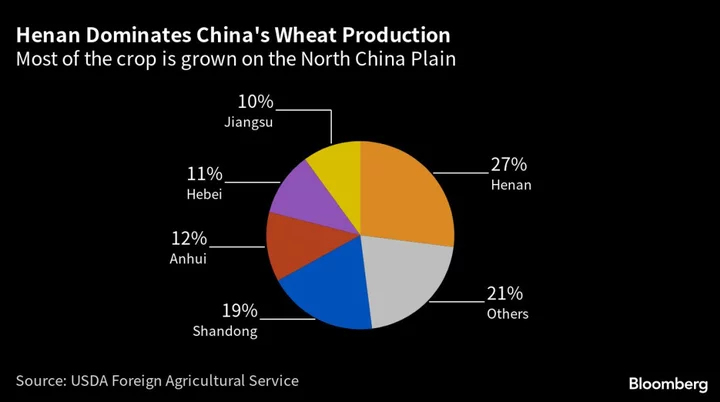Bets on the trajectory of the Bank of England’s key interest rate surged to the highest level in a quarter century as traders questioned officials’ ability to tame inflation without hobbling the UK economy.
Money markets are now fully pricing a terminal rate above 6.5% by March, according to interest-rate swaps tied to policy-meeting dates. That would be the highest since 1998 and compares with wagers on a 5% peak just a couple of months ago.
BOE Governor Andrew Bailey said inflation is still “far to high” in comments on Thursday, and pointed to signs of so-called “greedflation,” although he suggested the pace of price growth should fall sharply this year.
“The more yields rise, the more it scares buyers away because no one wants to catch a falling knife,” said Rishi Mishra, an analyst at Futures First Canada. “If it were just about levels, these are good enough levels for buyers to step in.”
Policymakers have delivered 13 successive rate increases since late 2021, including an unexpected half-point hike last month. The monetary policy tightening is now filtering through to the economy. On Wednesday, the UK Debt Management Office sold a gilt at the highest average yield since 2007.
Bailey last week said monetary policy decisions will be evidence driven. Yet UK inflation at 8.7% has beaten estimates four months running and still remains well above the BOE’s 2% target.
Traders may get more hints on inflation expectations on Thursday when the BOE decision maker panel survey for June is published at 9:30 a.m. London time.
JPMorgan Chase & Co. economist Allan Monks said there’s a risk the BOE will have to push interest rates to as high as 7%, triggering a “hard landing” in the economy. Schroders Plc also expects policymakers to prioritize inflation over growth by raising the bank rate to 6.5%.
“The lack of BOE policy rate guidance and uncertainty regarding inflation trajectory,” means traders are unwilling to bet against rates going higher, according to Evelyne Gomez-Liechti, a rates strategist at Mizuho International Plc.
UK 10-year yields rose 8 basis points to 4.57% on Thursday, the highest since October.

